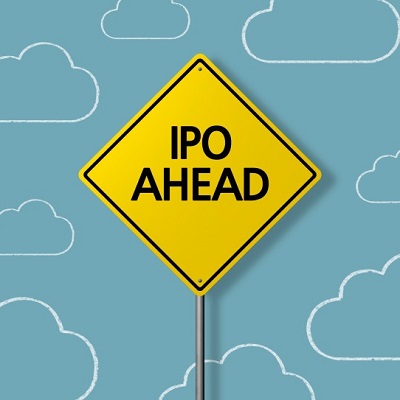
Image Source: Pre-IPO equity issues offer fresh investment opportunities | Australian FinTech
Investing in a company before it hits the stock market can be a bit like a behind-the-scenes pass to a concert—exciting and exclusive, but with its own set of unknowns. That’s what Pre IPO (initial public offering) investing is all about, and our article today will be your straightforward guide to understanding how it all works.
First up, we’ll break down Pre IPO investing in a way that’s easy to grasp. Think of it as Investing 101 for the companies that haven’t gone public yet. We’ll show you the different ways you can put your money into these companies, from joining a special investment group to jumping in through crowdfunding platforms.
We’ll talk frankly about the risks—like not knowing if the company will be a hit or a miss and the real possibility of losing your investment. In addition, we’ll also touch on the benefits of buying Pre IPO stock.
So, whether you’re thinking about investing or just want to learn more, this article will give you the lowdown on Pre IPO investing without all the jargon or technical terms.
So, if you’re ready, let’s get into it!
Pre IPO Investing Explained
Diving into pre IPO investing is not for the faint of heart. It’s the financial equivalent of strapping into a rocket before launch—exhilarating but overflowing with risk.
So before jumping the gun and investing in pre IPO stocks, let’s first ensure we understand what pre IPO investing is, how it differs from traditional stock market investing, and who can invest in these private markets.
Defining Pre IPO Investing
Pre IPO investing refers to the practice of purchasing equity in a private company before it lists on a public stock exchange. This period, often characterized by robust growth and development for the company, presents a unique opportunity for investors to acquire shares while the firm is looking to raise capital in the private markets.
Contrasts Between Pre IPO and Public Investing

Image Source: Public vs. Private Investment Markets – What’s The Difference? | Shannon Pineau
The distinction between Pre IPO investing and investing in publicly traded companies is significant. Public investors buy shares through a stock exchange, where prices are influenced by market forces and regulatory frameworks ensure a level of transparency and legal protection.
In contrast, buying private company stock is less regulated, carries more risk, and typically requires a longer-term commitment, as the shares cannot be easily sold or traded until the company goes public or is acquired.
Eligibility for Participation

Image Source: Who is an Accredited Investor and Why is it Important to Become One? | Overland Group
Historically, pre IPO investing was predominantly for institutional investors, venture capitalists, and high-net-worth individuals, mainly due to the large minimum investment requirements and the necessity for substantial industry connections.
However, with the creation of new pre IPO investing platforms and evolving regulations, retail investors, including both accredited and non-accredited investors, can now participate in the industry.
Accredited investors who meet specific income or net worth criteria have typically enjoyed fewer restrictions and more opportunities in private markets. Non-accredited investors, on the other hand, were largely excluded from these opportunities due to regulatory safeguards.
Recent shifts in the regulatory environment, such as the JOBS Act in the United States, have since leveled the playing field. This act has opened doors for a broader range of investors to participate in early-stage investing through equity crowdfunding platforms. These platforms allow non-accredited investors to invest in startups and growth companies, albeit with certain restrictions to protect less experienced investors from high-risk investments.
In summary, pre-IPO investing now stands as a distinct and exciting facet of investing that is increasingly accessible to a wider audience. It offers the potential for substantial returns and the opportunity to support emerging companies. However, it also requires investors, whether accredited or non-accredited, to possess not only the appropriate financial credentials but also a high tolerance for risk and a comprehensive understanding of the less transparent private market.
Different Ways to Invest in Pre IPO Companies
Pre IPO stock investing isn’t a one-size-fits-all approach. The industry is diverse, offering multiple avenues tailored to various investor appetites and capacities.
Below are the different ways investors can buy pre IPO stock:
Venture Capital Funds

Image Source: Sequoia, Y Combinator And A16Z Under Scrutiny In Congress Over ‘Tech Bro’ Culture | Forbes
Venture capital funds are firms that create investment portfolios that manage money from (usually high-net-worth) investors who are looking for private equity stakes in startups and small- to medium-sized enterprises with strong growth potential. These funds are one of the oldest and most well-known routes for investing in pre IPO companies.
Firms like Sequoia Capital, Benchmark, and Andreessen Horowitz are titans in this space, known for their early backing of companies that have grown to become household names. By investing in such funds, individuals can indirectly gain exposure to a portfolio of pre IPO companies, albeit usually with a hefty minimum investment requirement.
Angel Investing
Angel investors provide capital for startups at their earliest stages. These individuals often bring more than just money to the table; they may also offer mentorship and strategic guidance. Platforms like AngelList and Gust provide gateways for potential angels to discover early-stage startups seeking funding.
These platforms also offer mirroring opportunities, where one can invest alongside experienced angels.
Crowdfunding
Crowdfunding allows a large number of people to contribute towards the capital required by a new company or venture. This has been revolutionized by the JOBS Act in the United States, which opened the doors for non-accredited investors to participate in equity crowdfunding.
Websites like Kickstarter and Indiegogo are popular for product-oriented crowdfunding, while platforms like SeedInvest and StartEngine specialize in equity crowdfunding, allowing individuals to invest in early-stage companies for as little as a few hundred dollars.
Direct Investment
Accredited investors can directly purchase pre IPO stock. This can be done through direct contact with the company or through private investment in public equity (PIPE) transactions for companies planning to go public. For those with the right connections and capital, this is a way to build a direct relationship with the company and potentially influence its growth trajectory.
Pre IPO Funds
Pre IPO funds are specialized investment funds that buy and hold equity in companies that are expected to go public or be acquired in the future. These funds provide diversified exposure to a basket of Pre IPO companies and are managed by investment professionals. Companies like SharesPost and EquityZen offer platforms where investors can access such funds, which typically require less capital than direct investment or VC funds but still offer the potential for considerable returns.
Each of these investment channels has its own set of rules, risk profiles, and due diligence requirements. Potential investors should explore these options carefully, considering their individual investment goals, risk tolerance, and the size of the investment they’re willing to commit.
Risks When Investing in Private Companies
When contemplating an investment in private companies, it’s crucial to recognize and understand the inherent risks that accompany the potential for high returns.
Here, we’ll outline the major risks that investors face in the private market:
Liquidity Risk
Private company shares are not traded on a public exchange, meaning they lack the liquidity of public stocks. Investors may find it challenging to sell their stakes and might have to hold onto their investments for an indefinite period, often several years, before a liquidity event such as an IPO or acquisition occurs.
Valuation Ambiguity
Without the supply and demand component of public markets, private company valuations are less transparent. They are often based on negotiated deals or funding rounds, which may not accurately reflect the company’s true market value.
Regulatory and Disclosure Limitations
Private companies are not subject to the same level of regulatory scrutiny as public companies. They have fewer disclosure requirements, which can make it difficult for investors to perform thorough due diligence and assess the company’s financial health and prospects.
Market Risk
The success of a Pre IPO investment is closely tied to market conditions at the time of the company’s public offering. Unfavorable market conditions can delay or even cancel an IPO, negatively impacting someone’s investment.
Management and Performance Risk
Investors in private companies are heavily reliant on the company’s management team, whose decisions can significantly impact the company’s performance and, consequently, the value of the investment. Poor management decisions or failure to meet performance milestones can lead to significant losses.
Dilution Risk
Subsequent funding rounds can dilute the ownership percentage of early investors if the company issues more shares. This can lower the value of the initial investment if not properly structured with anti-dilution protections.
Default Risk
In the worst-case scenario, if a private company fails or goes bankrupt, investors may lose their entire investment, as they are typically lower in the repayment hierarchy compared to creditors and bondholders.
Understanding these risks is not meant to deter investors but to provide a realistic framework for evaluating whether pre IPO investing aligns with one’s financial goals and risk tolerance.
A more well-informed investor is better equipped to navigate this complex landscape of private company investments and make decisions that are congruent with their intended investment strategy.
Benefits of Buying Pre IPO Stock
While the risks of investing in private companies are significant, the benefits can outweigh the cons for the right investor. Here’s why buying pre IPO stock might be a strategic move for your portfolio:
High Growth Potential
Private companies in the pre IPO stage offer substantial growth potential. Early investment in these companies can lead to significant financial gains if the company grows rapidly and successfully enters the public market.
Early Entry Advantage
Investing in a company before it goes public allows investors to get in at a lower valuation, potentially leading to a higher return on investment compared to buying shares post-IPO when market hype can inflate stock prices.
Portfolio Diversification
Adding pre IPO stocks to an investment portfolio can offer unique diversification benefits. These investments can sometimes show a lower correlation with the broader stock market and can, therefore, provide a hedge against market volatility.
Influence and Access
Early-stage investors may have more influence on company decisions and strategy compared to investors in public companies. Additionally, they might receive access to detailed company information and direct communication with the company’s leadership.
Tax Benefits
Some jurisdictions offer favorable tax treatment for investments in startups or private companies, such as long-term capital gains tax rates, which can enhance the after-tax return on these investments.
Exclusivity
Pre IPO investing used to be an exclusive domain for institutional investors, venture capitalists, and high-net-worth individuals. Being part of this group can offer a sense of exclusivity and partnership in the company’s journey to success.
It’s important to balance these benefits with the associated risks and ensure that any investment in pre IPO stocks fits within the broader context of your diversified investment strategy. With proper due diligence and a clear understanding of the potential upside, pre IPO investing can be a valuable addition to any investment portfolio.
Final Word

Image Source: Private equity firms brace for difficult year | Advisor.ca
The key to investing in the pre IPO market is a balanced approach. It requires thorough research, a long-term perspective, and an understanding that not all investments will bear fruit. The investor who succeeds in this world is often one who blends optimism with realism—who sees the potential for growth while staying grounded in the face of volatility and uncertainty.
For those prepared to undertake the journey, the pre IPO world presents an opportunity to be part of the next big story in the business world, to contribute to innovation, and to potentially reap the rewards that come with the growth of a successful company.
Remember, pre IPO investing is not a sprint to quick profits but a marathon that demands stamina and strategy. As with all investments, there are no guarantees, but for those with the vision to see beyond the horizon, the rewards can be substantial.
Proceed with caution but also with the excitement that comes from investing in the next generation of companies that will change the world.
Disclosure/Disclaimer:
We are not brokers, investment, or financial advisers; you should not rely on the information herein as investment advice. If you are seeking personalized investment advice, please contact a qualified and registered broker, investment adviser, or financial adviser. You should not make any investment decisions based on our communications. Our stock profiles are intended to highlight certain companies for YOUR further investigation; they are NOT recommendations. The securities issued by the companies we profile should be considered high risk and, if you do invest, you may lose your entire investment. Please do your own research before investing, including reading the companies’ public filings, press releases, and risk disclosures. The company provided information in this profile, extracted from public filings, company websites, and other publicly available sources. We believe the sources and information are accurate and reliable but we cannot guarantee it. The commentary and opinions in this article are our own, so please do your own research.
Copyright © 2023 Edge Investments, All rights reserved.
